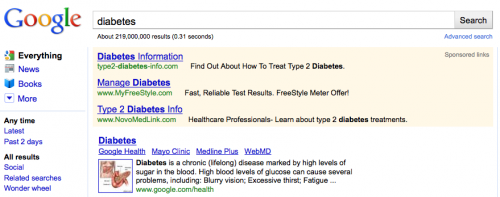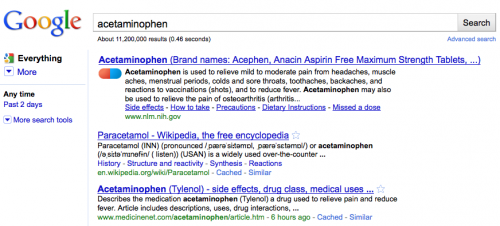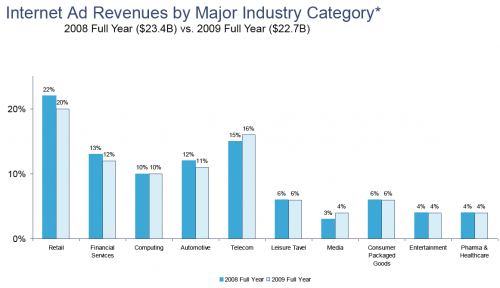Google Adds New Health-Search Feature For Medications
Last year Google began integrating structured health-related content at the top of search results (“Health OneBox“). Here’s what that looks like today for a search on “diabetes“: Today Google is expanding that search feature to include medications. When users search on a prescription or generic drug (e.g., “Lipitor” or “acetaminophen”) a summary and description will […]
Last year Google began integrating structured health-related content at the top of search results (“Health OneBox“). Here’s what that looks like today for a search on “diabetes“:
Today Google is expanding that search feature to include medications.
When users search on a prescription or generic drug (e.g., “Lipitor” or “acetaminophen”) a summary and description will appear at the top of search results. The summary links to National Institutes of Health (NIH) content and more specific information such as “side effects.” (The National Institutes of Health in turn license this data from The American Society of Health-System Pharmacists.)
The content and feature is US only. Google declined to say whether it would roll out to other countries. I would imagine that reliable content partnerships are a challenge to find in many countries around the world.
I spoke briefly this morning to Roni Zeiger, MD, Google’s “Chief Health Strategist,” about the new feature. He characterized Health as a key vertical in terms of consumer interest and query volume. Bing designated Health as one of its “strategic verticals” as well.
By making this type of information more visible — and reliable — in search results Google may drive additional consumer queries for drugs and their side effects.
In terms of advertising, the IAB shows Phrama and Health Care as a significant online ad-spending category.
At 4 percent of ad revenues, Health/Pharma represented just over $900 million in online ad spending in 2009 according to the IAB. And if search is roughly 47 percent of all online ad spending (or was in 2009 ) then the paid search share of this online health advertising pie is a little over $426 million.
Having said all that Google is trying to serve a perceived consumer need for authoritative health information and any advertising benefits that accrue to the company are a secondary matter. But that’s the beauty of the model, serve the consumer and the revenues follow.
Contributing authors are invited to create content for Search Engine Land and are chosen for their expertise and contribution to the search community. Our contributors work under the oversight of the editorial staff and contributions are checked for quality and relevance to our readers. The opinions they express are their own.
Related stories
New on Search Engine Land


